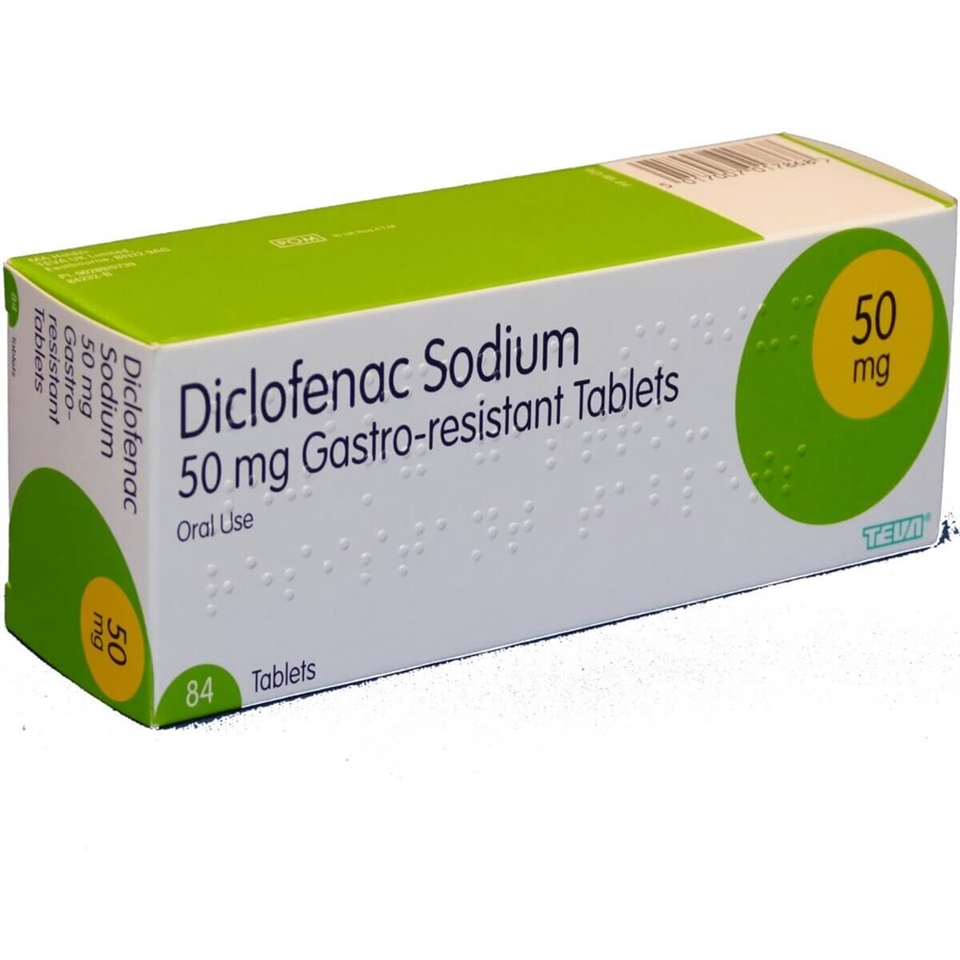Can I use diclofenac to relieve toothache?
Sodium diclofenac is an effective pain killer and can help dental patients to relieve toothache

Diclofenac is an analgesic. An analgesic is a drug that subsides the sensation of pain. Each analgesic has its own mechanism of action. Diclofenac too acts in its unique way.
In dentistry, extracting a tooth or teeth or removal of decay from deeper parts of tje teeth or root canal procedures can often elicit pain in the patient's mouth. This sensation of pain arises due to chemicals known as prostaglandins that are formed in the body. The formation of these chemicals is because of enzymes named cyclooxygenase (COX). These enzymes breakdown an acid called arachidonic acid that is formed in the cell membranes. A majority of analgesics including diclofenac inhibit COX and thus break the chain by not allowing the prostaglandins to form.
The action of diclofenac is so diverse that it acts on muscles, bones, headaches and toothaches. It does not simply reduce pain but also suppresses inflammation in the target area. In case of dental pain, any sharp or dull pain caused due to swollen gums, bleeding gums, broken teeth or post-operative pain can be managed by diclofenac.
Diclofenac had a broad range of mechanism and hence can certainly be used for toothaches. It is taken as a tablet, through an injection or as patches. In order to take it for toothaches, it is generally taken as tablets. In addition to anti-inflammatory and analgesic effects, diclofenac also has anti-pyretic effects. It means that it also helps in subsiding fever.
This medication should not be taken by those with a cardiac condition, asthma, stomach ulcers, hypertension, renal or hepatic condition, ulcerative colitis or lupus. Furthermore, it should not be taken by women in the third trimester of pregnancy. Patients with active cases of dengue should avoid diclofenac. If a patient is on diclofenac, he or she should avoid smoking and drinking alcohol during that period as it increases the chances of stomach bleeding. Moreover, since this drug might cause skin rashes and blisters the use of a sunscreen is advisable. If a patient is allergic to diclofenac or any other analgesic, patients must report the same to the dentist.
Diclofenac falls under the category non-steroidal anti-inflammatory drugs (NSAIDs). These are the class of drugs that should be given in the lowest dosage possible. It is usually not advised for children below 14 years of age. It is advised in patients above the age of 14 years at a dose of 75-100 mg. The medication works for 6 to 8 hours after which another dose can be given. It can be taken thrice a day.
There are a few side-effects of diclofenac which may or may not be felt by the patient. These include dizziness, hunger, headache, sweating, nausea, drowsiness, indigestion, etc. It is important to note that diclofenac is available as diclofenac potassium and diclofenac sodium. The former is the one that is more effective for relief against toothache.
Diclofenac is the most effective in providing analgesia compared to paracetamol and ibuprofen in adults. The commonly available brand names of diclofenac are Voltfast, Cataflam, Cambia, Zipsor, Voltaren. Apart from toothache, this medication is also effective in providing relief against muscle spasms, rheumatoid arthritis and osteoarthritis and migraine. After diclofenac has done its job in the body, it is absorbed in the gastrointestinal tract and later eliminated through the feces or urine.
One of the most important aspects about Diclofenac is that it should not be taken after the occurrence of pain. In other words, a patient must not wait for the episode of pain to take the drug. He or she should follow the discipline of taking scheduled dosages with food or antacid.
Injectable diclofenac is another way to suppress dental pain. The brand name for the same is Dylojet. In a study conducted in 2007, the effectiveness of Dylojet in patients with post-operative tooth extraction is higher than Voltarol. Ever since its introduction in the 1970s, Diclofenac has been one of the best choices for relieving dental pain. Thus, diclofenac used in multiple forms like injections, gels and patches can be effective in adults. However, clinical trials are still needed to ascertain the safety, success rate and toxicity of the drug in children below 14 years of age.
1 Copper Row, London Bridge
London, SE1 2LH
England
United Kingdom
OPEN 24 HOURS A DAY,
7 days a week, 365 days


